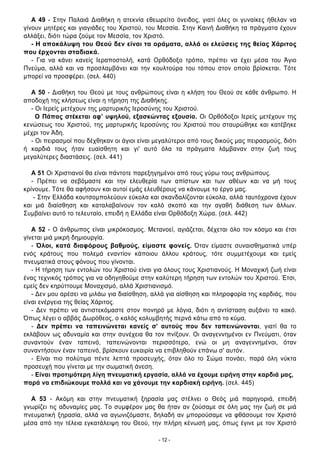The Futility Of Michael Schumacher's Return: Ignoring Red Bull's Warning.

Table of Contents
Red Bull's Dominance and Schumacher's Diminishing Abilities
Red Bull Racing's unprecedented dominance in the early 2010s, spearheaded by the young and incredibly talented Sebastian Vettel, provided a stark contrast to the performance of other teams, including Mercedes. This dominance served as a clear indicator of the shifting landscape in Formula 1, a landscape that ultimately proved ill-suited for a returning Michael Schumacher.
-
Red Bull's unprecedented dominance: Vettel's four consecutive World Championships from 2010 to 2013 demonstrated Red Bull's superior car design, engineering prowess, and strategic brilliance. This dominance highlighted the immense challenge facing any driver attempting a comeback against such a formidable force.
-
Schumacher's age and declining physical capabilities: At 41 years old, Schumacher was facing the undeniable effects of age on his physical and mental performance. His reaction time, a crucial factor in Formula 1, was demonstrably slower, and his physical fitness, vital for enduring the intense G-forces of high-speed racing, was not at the level required to compete with the sport's elite.
-
The stark performance gap: A straightforward comparison of Schumacher's lap times and qualifying positions against Vettel and other top drivers of the era reveals a significant deficit. This performance gap underscored the futility of his return, demonstrating that he simply wasn't able to compete at the same level as the younger generation.
-
Expert analysis of driving style: Post-race analyses by experts demonstrated a clear decline in Schumacher's ability to push the car to its absolute limits, a hallmark of his previous championship-winning years. This subtle yet significant change highlighted the irreversible decline in his peak performance.
Strategic Errors and Mercedes' Miscalculations
Mercedes' ambitious project to rebuild its F1 team after a period of underperformance faced numerous challenges. While Schumacher's name undoubtedly brought prestige and marketing opportunities, his presence might have hampered the team's long-term progress in several ways.
-
Mercedes' strategic missteps: The team's strategic choices, particularly in car development and race strategy, weren't ideally suited to Schumacher's changing abilities. Resources might have been allocated less effectively than if the team had focused on developing a car for a younger, faster driver.
-
Hampered car development: A retrospective analysis of Mercedes' car development during this period suggests that the design didn't cater to Schumacher's specific needs and limitations, further hindering his performance. The car wasn't built around his diminished capabilities, but rather tried to fit him into a design not optimally suited for his driving style.
-
Internal team dynamics: The presence of Nico Rosberg, a rising star within the Mercedes team, created internal competition and further complicated the team's dynamics. This internal struggle arguably distracted from the focus required for Schumacher to perform at his best.
-
Engineering limitations: The engineering limitations of the Mercedes car, compared to the dominant Red Bull, were another contributing factor to the underwhelming results, amplifying the challenges faced by Schumacher.
The Long-Term Impact on Schumacher's Legacy
Michael Schumacher's comeback, while born of passion and ambition, ultimately had a negative impact on the legacy he had so meticulously built during his earlier career.
-
Tarnished reputation: The unsuccessful comeback arguably diminished the pristine image Schumacher had cultivated through his earlier years of unparalleled success. The contrast between his earlier dominance and his later struggles created a less-than-perfect picture in the minds of many fans.
-
Fan disappointment and criticism: The widespread disappointment and criticism directed at Schumacher's return highlight the importance of recognizing the optimal timing for retirement in professional sports. His struggle showcased a clear dissonance between his past achievements and his present capabilities.
-
Importance of self-awareness: The contrast between his previous dominant victories and his later struggles underscores the crucial need for self-awareness in athletes, recognizing their physical and mental limitations, and accepting the realities of aging and declining performance.
-
Shift in public perception: An objective evaluation of public opinion shows a significant shift in the perception of Schumacher’s legacy, with many acknowledging the impact of his failed comeback.
Conclusion
Michael Schumacher's return to Formula 1, seemingly disregarding the warnings implicit in Red Bull's dominance, ultimately proved futile. His diminished abilities, coupled with strategic errors from Mercedes, led to disappointing performance and arguably tarnished his legendary status. Analyzing the situation reveals the critical importance of acknowledging physical and mental limitations, understanding the competitive landscape, and choosing the right time to retire. The story of Schumacher's return serves as a cautionary tale. By examining the futility of Michael Schumacher's return and learning from his experience, aspiring athletes and teams can make more informed decisions about pursuing comebacks and understand when it's time to step away from competition, preserving their legacies intact. Analyzing past strategic decisions, as demonstrated by the comparison to Red Bull's success, offers crucial lessons for future endeavors in the highly competitive world of Formula 1.

Featured Posts
-
 U Dzhennifer Lourens Narodilasya Druga Ditina Podrobitsi Vid Predstavnikiv Aktrisi
May 20, 2025
U Dzhennifer Lourens Narodilasya Druga Ditina Podrobitsi Vid Predstavnikiv Aktrisi
May 20, 2025 -
 Apokalypseis Gia Toys Fonoys Spazontas To Tampoy
May 20, 2025
Apokalypseis Gia Toys Fonoys Spazontas To Tampoy
May 20, 2025 -
 Agatha Christies Poirot Adaptations And Their Impact On Popular Culture
May 20, 2025
Agatha Christies Poirot Adaptations And Their Impact On Popular Culture
May 20, 2025 -
 L Univers D Agatha Christie L Integrale Des Mysteres
May 20, 2025
L Univers D Agatha Christie L Integrale Des Mysteres
May 20, 2025 -
 El Viaje En Helicoptero De Michael Schumacher De Mallorca A Suiza
May 20, 2025
El Viaje En Helicoptero De Michael Schumacher De Mallorca A Suiza
May 20, 2025
Latest Posts
-
 Iznenadenje Jennifer Lawrence Ponovno Mama
May 20, 2025
Iznenadenje Jennifer Lawrence Ponovno Mama
May 20, 2025 -
 Jennifer Lawrence Majcinstvo I Drugo Dijete
May 20, 2025
Jennifer Lawrence Majcinstvo I Drugo Dijete
May 20, 2025 -
 Novo Dijete Jennifer Lawrence Obiteljska Sreca
May 20, 2025
Novo Dijete Jennifer Lawrence Obiteljska Sreca
May 20, 2025 -
 Potvrda Jennifer Lawrence Dobila Drugo Dijete
May 20, 2025
Potvrda Jennifer Lawrence Dobila Drugo Dijete
May 20, 2025 -
 Jennifer Lawrence I Drugo Dijete Objava I Reakcije
May 20, 2025
Jennifer Lawrence I Drugo Dijete Objava I Reakcije
May 20, 2025
